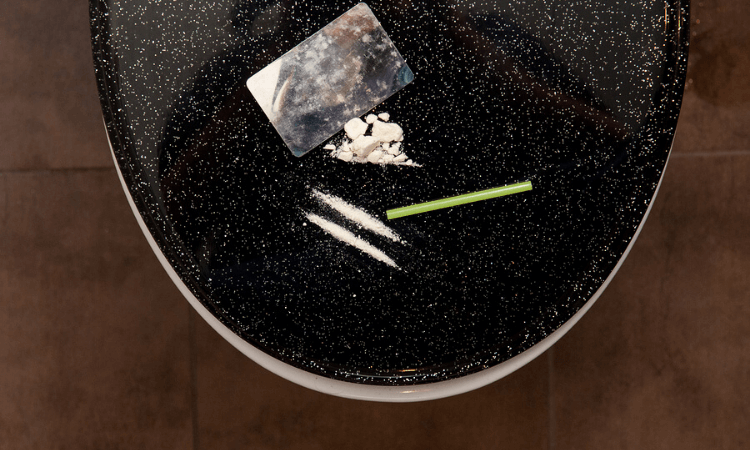
Difference Between Crack and Cocaine – Despite popular belief, there is a significant difference between crack and cocaine. The two are separate drugs that are similar, but these terms are not interchangeable.
The Difference Between Crack and Cocaine
Crack is semi-synthetic, as it is derived from cocaine but is also combined with other human-made products. Making crack does not involve a complicated process, as people typically mix powder cocaine with water and baking soda. The mixture is then boiled, cooled, and carved into rock-like forms, and sold. Those who abuse crack typically smoke it out of a pipe or snort it to achieve the fastest, most powerful effects.
The high that is induced by crack is much more intense than the high that comes from abusing normal cocaine, which is one reason why people turn to its use. Also, crack is considerably cheaper than cocaine (one gram of cocaine can cost as much as $150, while one gram of crack usually costs around $80).
When a person abuses crack, he or she will experience an intense stimulant high that causes him or her to feel euphoric and energetic. However, that high only lasts for around 15 minutes, meaning that individuals may be compelled to use crack in a binge-like fashion to keep their high going. Unfortunately, this repetitive behavior can increase the speed at which a person develops a crack addiction.
When someone begins abusing crack in this way, his or her brain can undergo adverse changes. For example, crack causes the brain to release a large amount of dopamine, so when someone stops using it, his or her brain might be temporarily unable to produce dopamine on its own. This change results in the person also becoming unable to experience pleasure naturally with this artificial catalyst.
Also, studies show that the cocaine present in crack works to hinder the brain from processing dopamine, which can cause a user to remain within a constant state of euphoria until the high wears off.
Effects of Crack vs. Cocaine
Symptoms of crack abuse and addiction include the following:
- A sense of grandiosity
- Inflated confidence
- Insomnia
- Increased heart rate
- Dilated pupils
- Hypertension
- Decreased appetite
- Weight loss
- Twitching
- Nosebleeds
- Hallucinations
- Delusions
- Paranoia
- Aggression
- Mood swings
Given these symptoms, a person who has used crack can be very unpredictable in his or her behaviors, which can be dangerous for both the user and those around him or her. In comparison, those who use cocaine may experience some of these symptoms, but in a milder form.
It is common for someone who is addicted to either cocaine or cracks to neglect other responsibilities while he or she focuses entirely on obtaining, using, and recovering from crack use. He or she may spend a considerable amount of time engaging in compulsive drug-seeking behavior, despite the incurrence of negative consequences as a result of his or her use.
Also, many people who are addicted to these substances struggle with financial and legal troubles as well as maintaining employment. Due to the cost, financial struggles may initially be more common for cocaine users. However, maintaining employment may be more difficult for crack users because it tends to be more emotionally destabilizing, which could potentially make it worse for financial issues in the long run.
Both crack and cocaine use can also put a tremendous strain on relationships, and chronic users may isolate themselves from family and friends and spend the majority of their time with others who use crack or other addictive substances. Regardless of the amount of crack being abused or how frequently, those who do so will experience the effects of their addiction rather quickly, some of which can be severe and potentially life-threatening. Cocaine abuse usually must become severe and frequent before serious strain occurs, and although these consequences may not be as immediate as those caused by crack abuse, cocaine’s addictive nature may make them inevitable.

Cardiovascular Problems
Both cocaine and crack are known for the many cardiovascular health problems they can cause. Individuals may experience high blood pressure and acutely accelerated heart rate (tachycardia), and may also develop an irregular heartbeat (arrhythmia).
Other cardiovascular problems that can occur can include:
- Angina (tightening of blood vessels, making the chest feel tight)
- Blood clots that can lead to pulmonary embolisms, stroke, heart attack, and deep vein thrombosis
- Myocardial infarction (death of heart muscle)
- A permanent increase in blood pressure
- Cardiovascular complications, such as heart attacks, that are the leading cause of death for those who use crack.
Respiratory Problems
Those who abuse crack can experience severe respiratory problems such as damage to the walls, capillaries, and blood vessels in the lungs. These persons can also develop “crack lung,” which is characterized by the following symptoms:
- Coughing and wheezing
- Black sputum
- Increased body temperature
- Increase in white blood cells
As a result of crack addiction, users are also at an increased risk for developing pneumonia, tuberculosis, asthma, and pulmonary edema (excess fluid in the lungs). Chronic cocaine use can result in damage to the lungs and nasal passages.
Brain Damage
In addition to the heart and lungs, cocaine and crack use can cause life-threatening damage to the brain. Those who are addicted to crack can experience a multitude of different effects on their brain, including the following:
- Strokes
- Seizures
- Alterations in neurotransmitter and nerve function
- Changes in prefrontal and temporal lobe function
As a result of these effects, users can struggle with cognition problems, impaired memory, mood disorders, and uncontrolled twitching and muscle movement. Abusing crack and developing an addiction to it can also cause damage to the liver, kidneys, and intestinal tract.
Crack and Cocaine Withdrawal

Even if they want to quit, many people who have become physiologically dependent on crack and cocaine continue to use them to avoid withdrawal symptoms. Withdrawal signs and symptoms may include the following:
- Depression
- Irritability
- Extreme fatigue
- Sleepiness
- Increased appetite
- Vivid, unpleasant dreams
- Anxiety
- Severe drug cravings
- Psychosis
Many factors can influence the severity of crack and cocaine withdrawal symptoms, including the intensity, duration, and frequency of use. Also, withdrawal may be affected by the use of other drugs or alcohol, as well as any co-occurring mental or physical health conditions. Unlike users of other addictive drugs like heroin or benzodiazepines, cocaine and crack users may not suffer many physical withdrawal effects, such as shakiness, vomiting, and sweating.
Treatment for Crack or Cocaine Addiction
Both crack and cocaine may be very difficult to stop using, as most people who are addicted to it use it frequently and regularly. Detoxing from crack is usually the first step in the recovery process, which can be extremely unpleasant, but can also be managed when performed in a professional setting.
People who are seeking help in their quest to stop using crack can benefit from several different treatments following a medical detox, such as psychotherapy and individual and group counseling. These treatment options will teach clients how to recognize and address the underlying factors that contribute to their addiction, along with any issues that have developed as a result of it.
After sobriety has been well-established and the therapeutic aspect of treatment has been completed, those in recovery can integrate back into their communities and attend local support groups, as well as continue therapy and counseling. We offer aftercare planning services that find local treatment and other resources that help with this reintegration so that clients continue to feel cared for and supported long after initial treatment has been completed.
Treatment at Recovery in Tune is custom-tailored to treat crack and cocaine addictions. Our experienced staff members help those with substance use disorder reclaim the fulfilling lives they once had, and provide them with the tools and support they need to achieve abstinence and maintain long-lasting sobriety and wellness.
If you or someone you love is struggling with an addiction to crack or cocaine, please contact us immediately to discuss treatment options. Discover how we help people free themselves from the chains of addiction and experience the happy, sober lives that they deserve!